
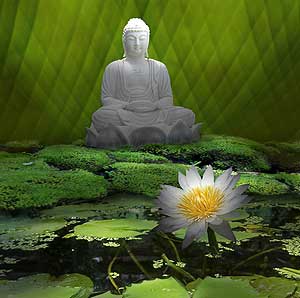




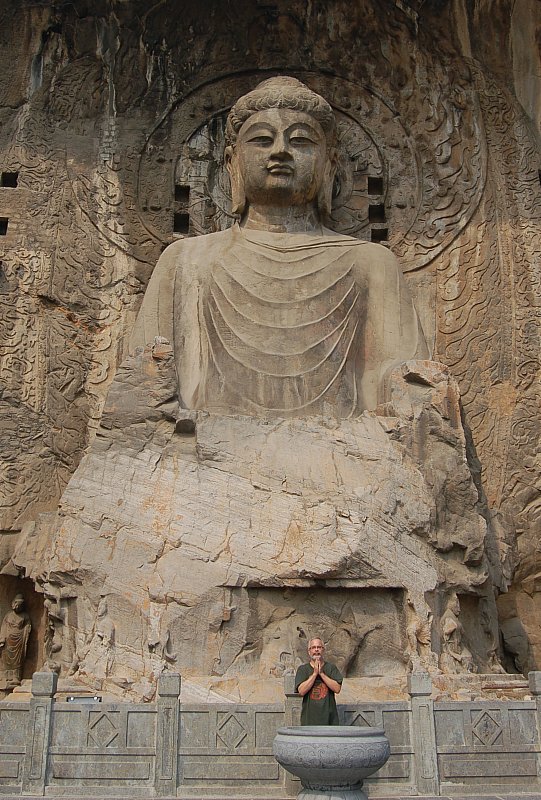
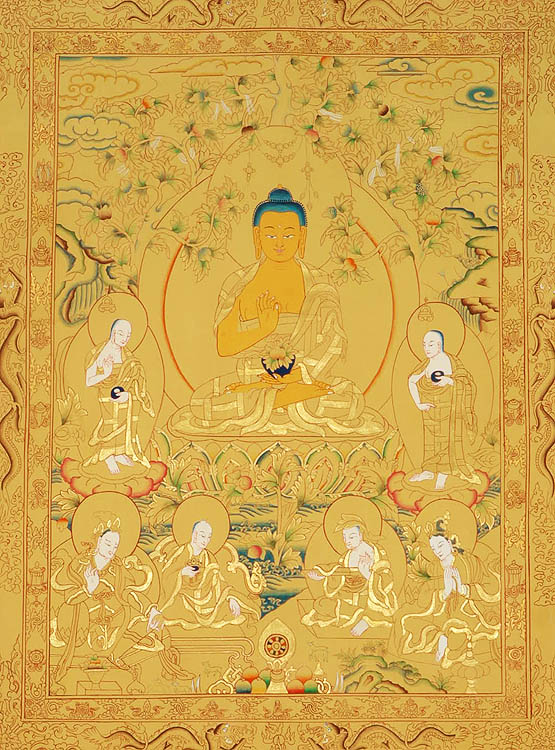









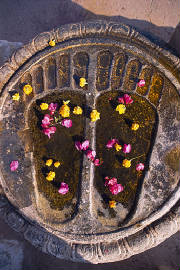

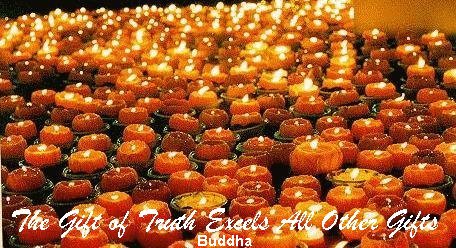




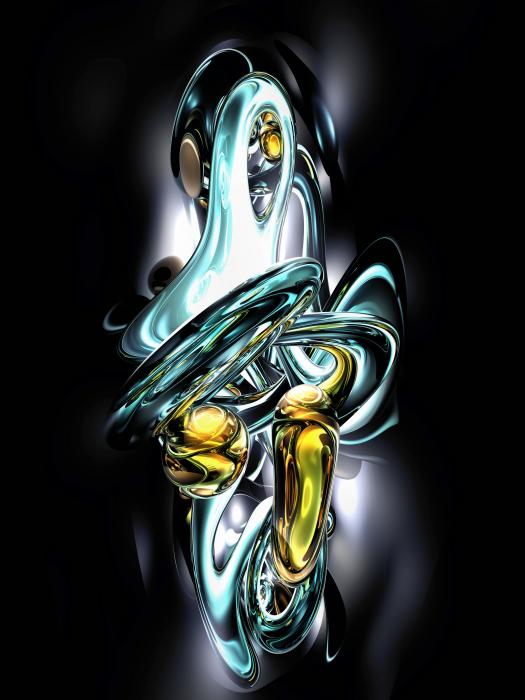

























10 12 2011 462 LESSON Samiddhi Sutta- One should do no evil by one’s speech, Not
anywhere, by body or in thought, Leave desires, be mindful and aware, Thus
avoiding pain that’s purposeless -FREE ONLINE eNālandā Research and Practice
UNIVERSITY & BUDDHIST GOOD NEWS LETTER Through http://sarvajan.ambedkar.org
FREE ONLINE CONCENTRATION PRACTICE INSTITUTE FOR
STUDENTS(FOCPIS)-
The Narratives for the Levels of
Departmental Curricula- Course Descriptions-
THE BUDDHIST ON LINE GOOD NEWS LETTER
COURSE PROGRAM
LESSON 462
Practice a Sutta a Day Keeps Dukkha
Away
Please SMS this message to your friends to acquire the MASTER KEY









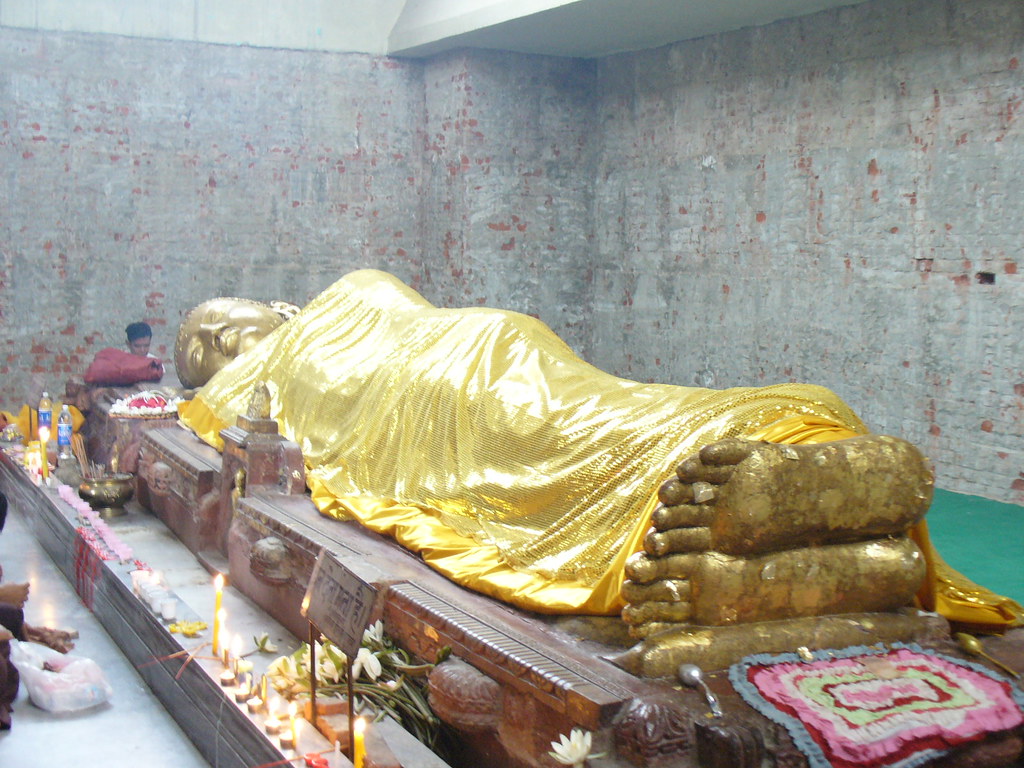


 |
| Phra Buddha Kanchanaphisek (Golden Jubilee Buddha Image) For celebration of the 50th anniversary on the throne of His Majesty the King (Please click to see the process of gold leaf coverage) |

“
King of the Kings White-Jade Buddha Image ”



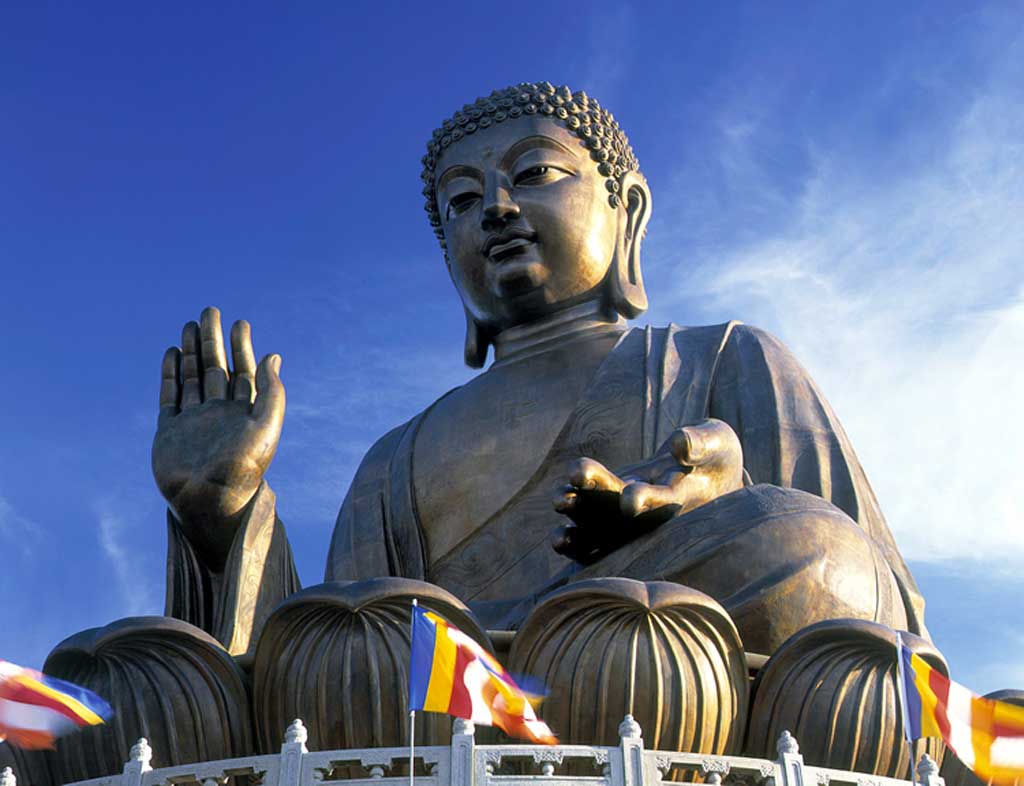








PTS: S i 8
CDB i 97
Samiddhi Sutta:
Samiddhi
translated from the
Pali by
Maurice O’Connell
Walshe
Alternate translation: Thanissaro
The Pali title of this
sutta is based on the PTS (Feer) edition.
Thus have I heard. At one time the Blessed One was staying at
Raajagaha in the Tapodaa Park. Now the Venerable Samiddhi, as dawn approached,
arose and went to the Hot Springs[1]
to bathe. Having bathed, he came out of the Hot Springs and stood, clad in a
single garment, drying his limbs. Then a certain she-deva,[2]
as the night was passing away, lighting up the entire Hot Springs lake with her
effulgent beauty, approached the Venerable Samiddhi and, hovering in the air,
addressed him thus in verse:
Having had no sport,
monk seeking alms,[3]
Having none today, just seeking alms, Why not get your fill, monk, then seek
alms, Lest your fleeting hour should slip away?[4]
[Samiddhi replied:]
“Hour” you
say, but I know not the hour. Hidden is my hour, and not revealed: Therefore,
self-restrained, I just seek alms, Lest my fleeting hour should slip away.[5]
Then the she-deva came down to earth and said to Samiddhi:
“You are young, bhikkhu, to have left the world, black-haired, with the
bloom of youth. In your youthful prime you do not enjoy the pleasures of the
senses. Get your fill, bhikkhu, of human pleasures. Don’t reject the present
moment to pursue what time will bring.”[6]
“I, friend, do not reject the present moment to pursue what
time will bring. I reject what time will bring to pursue the present moment.
Time’s pleasures, friend, as the Blessed One has said, are fraught with pain,
fraught with tribulation, leading to greater danger. This Dhamma is
here-present, out of time, inviting inspection, leading onward, to be realized
by the wise each for himself.”[7]
“In what way, bhikkhu, has the Blessed One said that time’s
pleasures are fraught with pain, fraught with tribulation and leading to
greater danger? In what way is this Dhamma here-present, out of time, inviting
inspection, leading onward, to be realized by the wise each for himself?”
“I, friend, am fresh, having not long left the world, a
newcomer. I am not able to explain in detail this Dhamma and discipline. But
the Blessed One, the Arahant, the Fully Self-Enlightened One is staying at
Raajagaha in the Tapodaa Park. Go to the Blessed One and ask him about the
matter. Then bear in the mind the explanation he gives to you.”
“It is not easy for us, bhikkhu, to approach the Blessed One.
He is surrounded by other devas of great power. If you, bhikkhu, will approach
the Blessed One and ask him about the matter, then perhaps we can come to hear
the teaching.”
“Very well, friend,” the Venerable Samiddhi replied to
her, and he went to the Blessed One, made his obeisance and sat down to one
side.
[He then told the whole story in identical words to the
Buddha.]
“If, Lord, that deva was telling the truth, she is right
here, not far away.”
When he had said this, the deva said to the Venerable Samiddhi:
“Ask him, bhikkhu, ask him! I’ve managed to get here!”
Then the Blessed One addressed the deva in verse:
Those who go by names,
who go by concepts, Making their abode in names and concepts, Failing to
discern the naming-process, These are subject to the reign of death, He who has
discerned the naming-process Does not suppose that one who names exists. No
such case exists for him in truth, Whereby one could say: “He’s this or
that”[8]
If you know what this means,[9]
tell me, fairy.[10]
“Lord, I do not fully grasp the meaning of what Your
Blessedness has expressed in brief. It would be well for me, Lord, if your
Blessedness would explain in full what has been expressed in brief, that I may
know its meaning.”
[The Blessed One said:]
“Equal I am, or
better, of less degree”: All such idle fancies lead to strife, Who’s
unmoved by all these three conceits Such vain distinctions leaves unmade.[11]
If you know what this means, tell me, fairy.
“Lord, neither do I full grasp the meaning of this which
Your Blessedness has expressed in brief. It would be well for me, Lord, if Your
Blessedness would explain in full what has been explained in brief, that I may
know its meaning.”
[The Blessed One said:]
Who labels not, and
holds no vain conceits, Has cut off craving here for name-and-form[12]
Free from bonds and pain, with no desires, Vainly seeking, none will find that
man, Neither gods nor men, on earth, above, Not in heaven, nor in any sphere.[13]
If you know what this means, tell me, fairy. If you know what this means, tell
me, fairy.
“Lord, the meaning of what Your Blessedness has expressed
in brief I understand in full like this:
One should do no evil
by one’s speech, Not anywhere, by body or in thought, Leave desires, be mindful
and aware, Thus avoiding pain that’s purposeless.”[14]
1.
This is the meaning of Tapodaa. Cf. place-names such as Teplaa,
Teplice in Czecho-Slovakia, all associated with hot springs.
2.
Strictly speaking, “she-deva” is ungrammatical, since
deva (Wheel 318, n.1) is masculine (the fem. devii usually means
“queen.” In all of these little stories the Pali text has the
abstract noun devataa which, like our “deity,” covers both
sexes. It is clear from the context as well as the pronouns used later in some
(but not all) manuscripts that this one is female. In its anglicized form,
“deva” can perhaps legitimately be taken to denote either sex.
3.
In Pali there is an untranslatable play here on the two meanings
of bhutvaa, “having eaten,” and “having enjoyed
oneself.” Such puns and similar ambiguities are not infrequent in the
texts, and are often difficult to bring out in translation.
4.
As will be seen, the devas, (none of whom, of course, are
enlightened) are at various stages of spiritual development. This one is
clearly not very advanced!
5.
The hour Samiddhi means is that of his death.
6.
Kaalika:
“concerned with time” (”time-ish”: Mrs. Rhys Davids). The
deva probably means “there is time for all that as you are young,”
but the word is no doubt introduced together with sandi.t.thika (here
rendered “the present moment”) to enable Samiddhi to quote the
standard formula on the Dhamma (n. 7).
7.
Sandi.t.thiko akaaliko ehipassiko opanayiko paccata.m veditabbo
viññuuhi. Sandi.t.thiko lit
means “visible” but has the sense of “present, at the present
time, in this life”; akaaliko “timeless” can mean both
“immediate” and “not involving time, outside of time,” ehi-passiko
= “come-and-see-ish”; opanayiko (from upa-neti
“leads towards”) means “leading to the goal.” The Dhamma as
Truth can only be realized individually by insight.
8.
Mrs Rhys Davids says “The Buddha rebukes the fairy [see
below, n. 10] for her
suggestive ambiguities.” But the real ambiguity lies deeper than such
frivolity, being concerned with the difference between conventional truth (sammuti-sacca)
which takes beings, etc., as being real, and the ultimate truth (paramattha-sacca)
which does not (see also SN 1.25, The
Arahant).
9.
Sace vijaanaasi: Mrs. Rhys Davids renders “If thou knowest [such a
man].” But the clear meaning is “if you can grasp this distinction,”
which is how the she-deva takes it, admitting that she cannot.
10.
“Fairy”: yakkhii, a female yakkha. These
(Sanskrit yak.sa) are somewhat ambiguous creatures, sometimes helpful,
sometimes harmful to man, though later they are thought of as demons (see PED).
There is doubtless an implied rebuke in the Buddha’s choice of this form of
address. “Fairy” (also an ambivalent expression) is probably the best
word here (as used by Mrs. Rhys Davids).
11.
The three forms of conceit (maana) are to think one is
equal to, less than, or better than another. All three are due to the
ego-illusion (see SN 22.49).
12.
Naama-ruupa.
13.
He has passed into Nibbaana, and therefore cannot be found
anywhere.
14.
She has, according to SA, rightly discerned the Middle Way
between self-indulgence and self-torture. In fact, it looks as if her
understanding is still somewhat limited: she has, however, grasped the fact
that she was indulging in wrong speech at the ethical, if not the ontological
level referred to by the Buddha, and she has also understood that one should
“leave desires.” If she has been cured of her frivolity, that at
least is a good start!












The Only Hope of the
Nation is Elephant of BSP!
of BSP!
People are just fed up
with Congress, other regional parties and BJP!
To capture the Master
Key!
It is do or die!







watch latest Birthday video:http://www.in.com/videos/watchvideo-mayawati-birthday1mp4-8025851.html





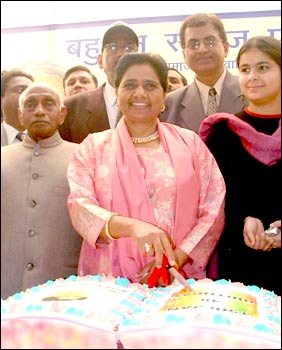
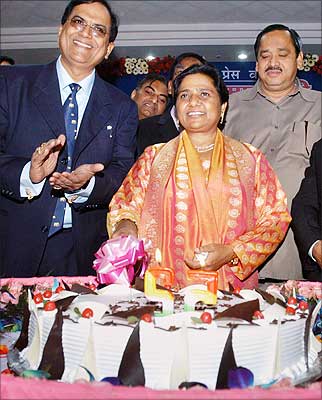












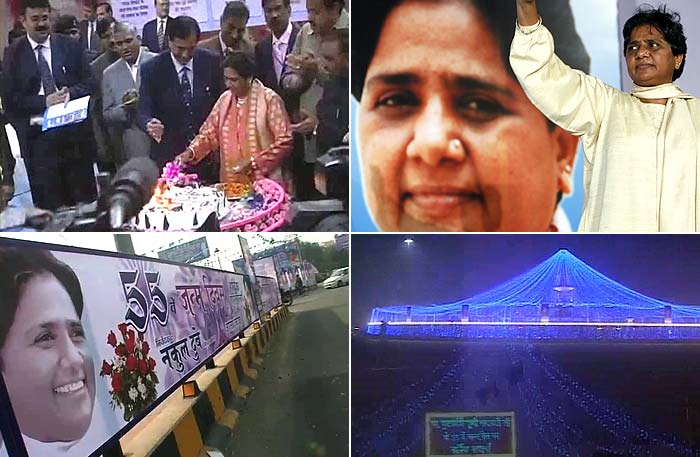

















|
POLITICS is SACRED with Highly
performing best and meritorious governance of Ms Mayawati
The Lok Sabha
election is on the way. Predictions on the hot topic - who will be the next
Prime Minister of PraBuddha Bharath?
Citing the
report, many started speculating that Mayawati also can be the next Prime
Minister as the report mentioned about a Untouchable (Scheduled Caste)
Here it can be recalled that the BSP leader and the Chief
Minister of Uttar Pradesh always has been noticed of using her Sarvajan Hithay
Sarvajan Sukhay i.e., the welfare and happiness of the entire people of the
Country card. The report will enhance Maywati’s dream who is looking forward to
the assembly election, 2012.
None can
stop Uttar Pradesh chief minister Mayawati from setting a record.
By the time the Uttar Pradesh Assembly elections are held
next year, the BSP boss will have scored over G.B. Pant, Kamalapati Tripathi,
Sampurnanand, Sucheta Kriplani, N.D. Tiwari, Mulayam Singh Yadav, Kalyan Singh and all the other chief ministers the
state has had since Independence.
She will be the first Uttar Pradesh chief minister to
complete five years in office ‘ that is, a full, uninterrupted term.
The country’s most populous and politically vital state
has till now not had a chief minister who served a full term.
Even Pant, a legendary figure and freedom fighter who in
1937 became chief minister of the then United Province, could not complete a
full term.
Pant, whose political skills were highly regarded by both
Mahatma Gandhi and Jawaharlal Nehru, served as chief minister four times ‘
twice before Independence and twice after.
But his stints were separated by Assembly polls and then
by his appointment as the country’s home minister in December 1954.
Sampurnanand, a teacher and a towering figure during the
freedom struggle, succeeded Pant. He served from December 1954 to December
1960, his tenure broken by the April 1957 Assembly polls.
Sampurnanand’s successor Chandra Bhan Gupta was regarded
as a politician among politicians. His uneasy ties with Indira Gandhi and
one-upmanship with Kamalapati Tripathi and Hemvati Nandan Bahuguna resulted in
political instability and the emergence of the first non-Congress government in
the heartland when Charan Singh became chief minister in 1967. Between 1962 and 1967, several
chief ministers came and went.
Gupta had several stints between December 1960 and April
1967. Kriplani, who came from a Bengali family, took over in October 1963.
Gupta was back on March 14, 1967, but couldn’t survive beyond 18 days.
Throughout
the 1970s, governments led by Charan Singh, Tribhuvan Narain Singh, H.N.
Bahuguna, N.D. Tiwari, Ram Naresh Yadav and Banarsi Das kept collapsing, paving
the way for four spells of President’s rule.
In 1980,
Sanjay Gandhi picked V.P. Singh, who moved to the Centre in 1982. Vir Bahadur
Singh ruled between September 1985 and June 1988. The state was again handed
over to Tiwari, who took up the job for the third and last time as a Congress
chief minister of undivided Uttar Pradesh.
Mulayam Singh Yadav worked out a deal with the Congress
to become chief minister in December 1989, but the June 1991 polls saw a
resurgent BJP win the elections. But December 6, 1992, marked Kalyan Singh’s
dismissal.
December 1993 saw the short-lived coming together of
Mulayam and Mayawati under a Kanshi Ram-supervised power-share formula.
The BJP’s rule between 1997 and 2002 saw Kalyan, Ram Prakash Gupta and
Rajnath Singh occupy the chair. Mulayam’s tenure between August 2003 and May
2007 provided some degree of stability.
In May 2007, Mayawati defied her critics by getting a
decisive mandate. Her paradigm-bending alchemy of Brahmin and SC/ST votes now
faces no challenge.
By victory, Mayawati will still take a trophy.
Video on
BSP will return to power in UP: Mayawati says
Opposition is scared of BSP. Youraj came running to UP leaving the Parliament
in middle of the session.
Show of strength at Ramabhai Ambedkar Ground
|
Mayawati’s proposal to divide Uttar Pradesh into four States goes Uttar Pradesh Chief Minister Mayawati on Tuesday announced massive bonanza for several cities, especially drought-hit Bundelkhand. Laying down foundation stones for 160 projects worth Rs 1400 crore on the death anniversary of Baba Saheb Bhim Rao Ambedkar, Mayawati also blown poll bugle for the 2012 assembly elections. Mayawati announced electricity project of 375.22 crore while gave 276 crore for Bundelkhand region. The uttar Pradesh government also allotted Rs 42 crore for Jhansi, Rs 14 crore for Mahoba and Rs 17.9 crore for Chitrakoot. Speaking on the occasion, she thanked people for supporting her BSP government. She said that her government has been working on the principal of ‘Sarva Jan Hitaya and Sarva Jan Sukhai’. Mayawati said that Baba Saheb’s hard struggle for the SC/ST communities played major role in her good governance and helped her to uplift the backwards. “We have reached at this position after hard struggle and will not leave this position despite of all political conspiracies pull down BSP government. My party always emerged strongly after crisis. I believe that once again Opposition will taste dust in the assembly elections.” She urged people to vote BSP in the forthcoming assembly election to fulfill the dreams of Baba Saheb. Attacking opposition political parties, Mayawti said that previous governments utterly failed to uplift the SC/STs. “Don’t get hoodwink by the false promise of such opportunistic political parties. SC/STs didn’t get their rights during the last governments.”
Mayawati looks to repeat ‘07 formula Uttar Pradesh chief minister Mayawati will hold a grand rally of Muslims, Thakurs and Vaishyas on December 18 in Lucknow as part of her campaign to replicate her sarvjan (all communities) formula of 2007. The BSP has already held two such rallies: a Brahmin rally, and a SC/ST-OBCs rally. The Bhaichara Samitis — vehicles of SC/ST outreach to other castes — are also back in action. “Bhaichara samitis have been activated once again in the last 1-1.5 years. SC/STs too are solidly behind her, and this means that BSP’s candidates are likely to be most winnable.” Mayawati’s core SC/ST vote is 21% of UP’s population. It is this huge base that makes the BSP’s Brahmin (9%), Thakur (7.9%), Muslim (18%) and OBC candidates tend to gain: some in their own castes see them as more winnable than candidates from other parties, leading to a vote split in favour of the BSP. Mayawati’s strategy is harping on graft charges against the central government and BJP governments in BSP sources insist the construction of statues in the memory of SC/ST/OBC icons will work in her favour. She will also showcase her populist schemes like the Kanshi Ram Shehri Awas Yojana (giving two lakh houses SC/STs must conquer Delhi, says Maya
LUCKNOW: UP chief minister and BSP chief Mayawati on Tuesday launched 160 development projects worth Mayawati said “Babasaheb The projects announced by Mayawati included several related to drinking water and electricity supply worth Rs 267 for the Bundelkhand region comprising seven districts. While Rs 179 crore has been marked for Chitrakoot, Jhansi has been given Rs 42 crore and Mahoba Rs 14 crore. The projects will provide benefit to the people in the other four districts as well. Rest of the development projects worth Rs
Mayawati made announcements after paying tribute to Ambedkar. While addressing lakhs of party workers assembled at Smajik Prerna Sthal,a memorial built for SC/ST/OBC icons in Lucknow, Maya lashed out at Mayawati said Opposition parties were constantly attacking her party and its leaders on petty issues because they have no other issues to talk about. “With only some time left for the assembly polls, Opposition have lost their sleep,” she said. Describing rival parties as anti-SC/ST/OBC/Minorities/poor among Upper Castes, she said that none of them gave due honour to SC/ST/OBC saints and leaders and created hurdles in construction of SC/ST.OBC memorials in UP by her The chief minister said that only BSP is taking forward the work started by Babasaheb to uplift and empower SC/ST/OBC/Minorities/Poor amon Upper Castes and marginalised sections of the society. However, she added, despite working relentlessly for the cause for last two decades, still a lot has to be done for the masses suppressed since ages. She claimed that her government has been working for poor in all castes and communities,
  Thus spoke AmbedkarLast Message to the people“Whatever
|
 |
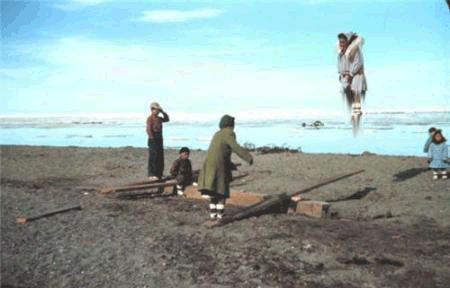
![]()


 |
 |
 |
 |
|---|






